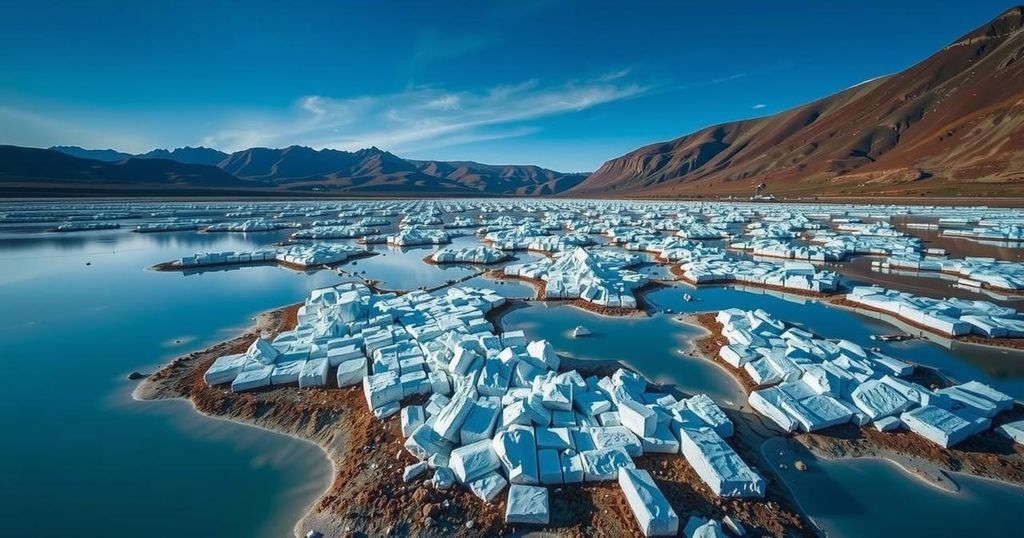China Invests $1 Billion in Bolivia’s Lithium Extraction Project
A Chinese consortium has invested $1 billion in Bolivia to extract lithium from the Uyuni salt flat, held by a government stake of 51%. This project, expected to produce 35,000 metric tons annually, could provide an advantage for Chinese battery suppliers like CATL in North America, despite potential regulatory uncertainties.
A Chinese consortium, known as CBC, has formalized a significant agreement with the Bolivian government to extract lithium from the Uyuni salt flat, a critical location in the lithium triangle shared with Chile and Argentina. This endeavor will involve an investment of at least $1 billion from CBC to develop two direct lithium extraction plants. The Bolivian government will maintain a 51% ownership stake in these facilities, underscoring their commitment to local participation in this strategic resource extraction.
The project is projected to yield an impressive annual output of 35,000 metric tons of lithium, according to Omar Alarcon, the head of Bolivia’s state-run lithium company, YLB. The two planned plants will produce lithium carbonate—10,000 tons from one plant and 25,000 tons from another geared towards battery-grade lithium. Alarcon emphasized that this venture will be underpinned by CBC’s proprietary technology and will be undertaken at the consortium’s financial risk. Furthermore, CATL, a prominent battery supplier, is anticipated to be part of this consortium, which may provide a competitive advantage for Chinese electric vehicle suppliers in North America. Nevertheless, future developments concerning China’s participation in North America remain uncertain due to potential regulatory changes under the incoming administration led by President-elect Trump.
Cumulatively, this agreement marks a strategic move not only for Bolivia, aiming to capitalize on its abundant lithium reserves but also for China, which seeks to solidify its foothold in the burgeoning electric vehicle market. This investment represents a critical linkage between Bolivia’s natural resources and the evolving demands of the global energy sector, especially in the realm of sustainable transportation.
Lithium is emerging as a crucial element for the production of batteries, particularly for electric vehicles, which is driving a global demand surge. Bolivia is home to one of the world’s largest lithium reserves located in the Uyuni salt flat, a region that has become increasingly attractive for foreign investments aiming to tap into this resource. The collaboration between Chinese firms and Bolivia is not merely an economic transaction but a part of a broader geopolitical strategy in the context of the electric vehicle industry’s growth and the regional competition for lithium extraction. This agreement signifies a movement towards localized production and processing of vital materials for the green energy transition while also hinting at the shifting dynamics of trade relations.
The $1 billion investment by the Chinese consortium CBC in Bolivia’s lithium extraction signifies a noteworthy development in the global lithium supply chain, providing Bolivia a pivotal role as a key lithium producer. This project not only enhances China’s position in the electric vehicle market but also emphasizes Bolivia’s strategic potential in the resource sector. Given the uncertainties surrounding future trade policies, particularly concerning relations with Chinese enterprises, the outcomes of this venture will be critical to assess in the months and years to come.
Original Source: www.teslarati.com








Post Comment